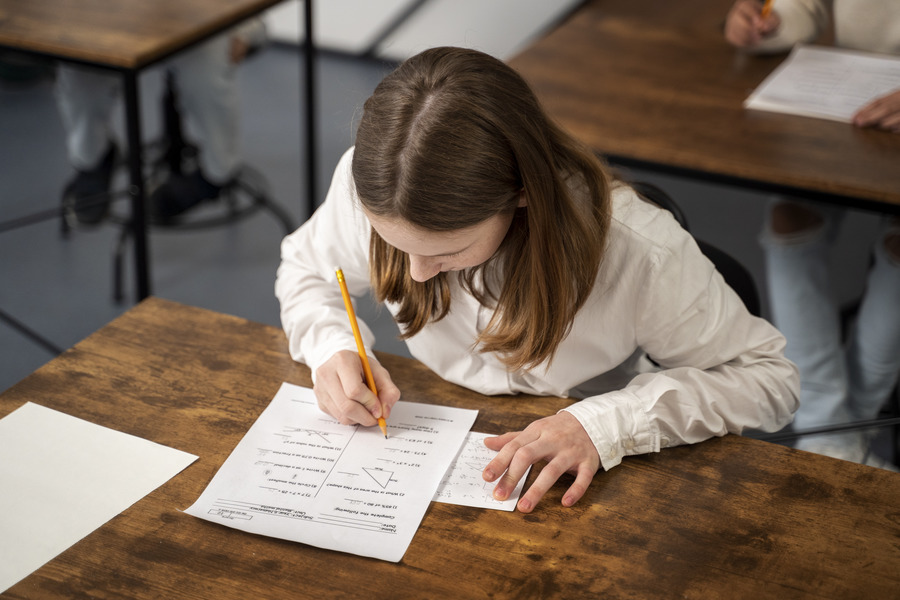
Crafting Originality: Strategies How To Avoid Plagiarism Effectively
Today, when one walks in the modern world where there is a free flow of information and inspiration can be found everywhere. Sometimes, it becomes difficult to walk on the ethical line while writing. However, the very instruments that make it possible for us to learn and discover are prone at times even unintentionally (and sometimes intentionally) toward plagiarism. This is the place where originality becomes not only an art, but also a duty.
This article will give you the necessary knowledge and techniques that will enable you to know how to avoid plagiarism while creating pieces of work which precisely demonstrate your individual essence.
How To Avoid Plagiarism – Understanding Its Forms
Plagiarism takes many forms that lie beyond copy-pasting. You need to be familiar with all of them to know how to avoid plagiarism. A common form is mosaic plagiarism, which involves rewording the source material without appropriate citation in order to convey an illusory feeling of novelty.
Another type is self-plagiarism, which happens when one reuses previous work without giving credit.
The inadvertent form of plagiarism is where people fail to provide appropriate citations due to negligence or unawareness.
Collusion, one prevalent in academic circles is the unauthorized combination that compromises individual achievement.
Also, paraphrasing without giving credit is another subtle but an unethical form of plagiarism.
Here are some examples of plagiarism:
- Unreferenced copying of a passage from the book or article.
- Plagiarism is borrowing someone else’s idea without giving credit to the original author.
- Cheating by presenting the same work for two different classes.
- Ghostwriting.
It is also crucial to know about the various types of forms of academic cheating so that you can know how to avoid plagiarism.
What Is Plagiarism and How to Avoid It: Detailed Explanation
So, what is plagiarism and how to avoid it? Plagiarism in writing means taking someone else’s work or ideas and passing it off as your own without giving proper credit. This includes a variety of acts, such as copying text without quotation marks and paraphrasing ideas without citing the source. Independent of the purpose, plagiarism is a grave academic and professional crime that has far-reaching implications.
To know how to avoid plagiarism, it’s crucial to understand its various forms:
- Direct plagiarism: This refers to the act of simply copying another person’s work one word for one word while ignoring quotation marks or citations. This is the most direct type of plagiarism and it’s never allowed.
- Mosaic plagiarism: This includes collaging different strands of someone else’s work together to form a new text that lacks proper citation. While apparently less straightforward, this is still regarded as plagiarism.
- Paraphrasing without attribution: Even if you paraphrase someone else’s ideas in your own words, you must still give credit to the original source. Failing to do so constitutes plagiarism.
- Self-plagiarism: This is done when you plagiarize your own work without proper citation, especially cases where the same paper has been submitted for different assignments or publications.
The solution of plagiarism is in taking the ideas that are owned. Every idea, interpretation and argument is someone’s. You have to use these already existing approaches and augment them with your reasoning, taking credit where it is due.
The Importance of Steering Clear of Plagiarism
In addition to avoiding trouble, the ethical responsibilities of non-plagiarism require a lot more than that. The original document must show your own voice, critical thinking skills and contribution. Plagiarism not only devalues your own input but it also undermines the intellectual property of others.
In addition, plagiarism weakens the very pillars of academic and professional honesty. It undermines trust and leads to a situation in which true success is worth less. Through the adoption of ethical writing practices, you promote an environment where intellectual integrity prevails and your work gets credited for what it truly represents.
Strategies to Steer Clear of Plagiarism in Writing
Now that we’ve established the ground rules, let’s delve into concrete tips on how to avoid plagiarism to ensure your writing remains original:
- Develop your research skills: Comprehensive research is the base of every good writing. By exploring various sources, formulating your own arguments and critically analyzing information you will inevitably not plagiarize.
- Master the art of paraphrasing: Plagiarism is inevitable if one cannot learn how to paraphrase ideas as his own. But keep in mind that replacing a few words is not sufficient. Make sure that your paraphrase captures not only the original text but also how you understand it.
- Quote strategically: However, quoting other people can be the best way to strengthen your assertions and give authority to papers. But use them sparingly and always put quotation marks around quoted material and cite your sources correctly.
- Paraphrase and cite in combination: Be ready to apply both paraphrasing and quoting for longer pieces or complicated concepts. Paraphrase the key points and then quote specific sentences or phrases you want to highlight.
- Utilize citation tools: Tools such as reference builders and plagiarism checks can be very useful, but remember to use them only for guidance not guaranteed solutions. Make sure you double-check your citations with the original source, and ensure that you are able to formulate an individual interpretation of citation formats.
- Seek feedback and peer review: This process of sharing your work with trusted peers or mentors not only provides useful insights but also allows you to identify the places where your writing might appear similar to others. Constructive criticism will help you become more inventive and lucid.
The Ramifications of Engaging in Plagiarism
The penalty for not knowing how to avoid plagiarism for students may be much more than failing grades or punishment. Plagiarism can:
- Damage your reputation: Plagiarism is a reputation haunt that can jeopardize your academic and professional career in the future as you will not be able to obtain pleasant opportunities, trust of peers and supervisors.
- Legal repercussions: In some instances, plagiarism can lead to legal actions especially if it is done with copyrighted materials.
- Loss of future opportunities: It might result in a disciplinary measure, expulsion from school and sometimes sacking.
In academic settings, not knowing what is plagiarism in writing can result in the following:
- Failing the assignment or course.
- Receiving a grade of F in the course.
- Being placed on academic probation.
- Suspension or expulsion from the institution.
In professional settings, plagiarism can result in the following:
- Being fired from your job.
- Losing your professional license.
- Being sued for copyright infringement.
Besides the short-term effects, plagiarism also affects one’s long-term career. People who suffer from having a reputation of plagiarism may have trouble finding employment, moving up the career ladder with promotion or even trusting them. It can also destroy your professional contacts and create difficulties in teamwork.
In case of plagiarism, it is necessary to admit one’s fault and learn the lesson. You might need to take a course on plagiarism prevention or write an essay about the issues of plagiarism. You might also be expected to apologize to your instructor or boss.
Having learned the potential risks, you realize how important it is to know how to avoid plagiarism and commit your academic and professional reputation.
EsssayUSA.com: Your Trusted Partner in Plagiarism-Free Academic Writing
In the academic world where creativity and quality are critical, EsssayUSA.com comes as one of the most trusted partners in need by students looking for unique essays that have impeccable writing style. The company is a leader in defining plagiarism and specializes in writing academic papers free from plagiarism and provides an individual, professional approach to every order we receive.
- Expertise in each subject: We have a skilled team of writers from different fields. This is what enables us to ensure that your order will be prepared by a qualified expert working in the respective domain.
- Guaranteed originality: We pride ourselves in ensuring that every piece is one of a kind. Our writers know all about “plagiarism how to avoid it” and operate with different citation methods. Every text is subjected to plagiarism testing, which can be confirmed by reports issued by widely used anti-plagiarism programs.
- Personalized approach: Recognizing that no customer is the same, we offer a chance to speak directly with the author. You can specify your desires and needs to get exactly the result for which you are looking.
- Meeting deadlines: We appreciate your time, and we work hard to send finished work by the agreed deadline. Our timing control system guarantees your order to be done on time.
- Privacy and Security: At EssayUSA.com we ensure full confidentiality of your data and information. We rely on dependable technologies to keep information about our clients secret.
With the selection of EssayUSA.com, you pick up a reliable partner in reaching your academic objectives with confidence that each paper we write is unique and high-quality.






